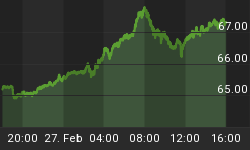Last night, in one of the stranger moments in recent international news, Seif al-Islam, son of apparently toppled Libyan leader Moammar Gadhafi, called a hasty press conference in Tripoli, hours after spokespeople of both the rebel coalition and the International Criminal Court had announced that he had been captured by opposing forces.
To the surprise of journalists, the Gadhafi scion strode confidently around the streets of Tripoli and emphatically offered a version of events completely at odds to the narrative that we have seen on our television screens over the past few days.
In a scene reminiscent of the bizarre press conferences offered by "Baghdad Bob" (who claimed back in 2003 that forces of Saddam Hussein had routed the invading Americans), Mr. Al-Islam boldly claimed that the "backs of the rebel forces had been broken" and that the Gadhafi regime was in firm control of the capital.
With this shameless performance echoing in my head I changed channels to see an interview by CNN host Piers Morgan of GOP presidential candidate Jon Huntsman. When pressed genially by Mr. Morgan as to his electoral prospects, the floundering candidate responded as all candidates do in similar situations: he assured viewers in no uncertain terms that he fully expected to secure the Republican nomination and to eventually become the next president of the United States.
I have nothing against Mr. Huntsman, by all accounts he seems to be a fine upstanding man who feels deeply about his family and his country, but his characterization of his campaign had about as much relationship with reality as did Gadhafi Jr.'s assessment of the military situation in Libya. Please understand that I am making no direct moral equivalent between the two men, I am simply noticing a similarity between how public figures address a mass audience.
There are certainly no objective surveys that show a path to victory for Mr. Huntsman in this election cycle. Yet all political consultants would agree that it would be political suicide for him to assess the situation honestly. For some reason, he can't say that his prospects appear remote but that he is soldiering on bravely despite the odds and to bring his message to the people regardless of consequences.
Why is that? Aren't Americans supposed to rally behind the underdog and those who strive even when victory appears remote?
Unfortunately, one of the most important political assets is the aura of strength, which has much more to do with appearance and tone than it does with substance.
The body politic, whether in a democracy or a crumbling dictatorship, wants to be, to paraphrase Bob Dylan, "on the side that's winning." That's why results from the early primary states are so disproportionately important. Candidates risk all to get "frontrunner" status. Undecided voters then irresistibly drift to the seemingly stronger candidates just because those figures offer the thrill of victory, not necessarily because they agree with the candidates' positions.
Unfortunately issues can be complicated, but the image of strength is simple. Mitt Romney leaning over a hay bale in Iowa while thrusting a finger at an audience heckler is the campaign moment most clearly relished by his supporters. What he said to the heckler was immaterial; he just looked strong doing it. There is a very similar dynamic in the financial world in which, during times of uncertainty, investors often blindly follow the crowd while seeking safety in numbers (see my recent article).
They flock to U.S. Treasuries simply for the aura of safety, not for any inherent virtue of the asset.
What amazes me, is that in a free country, where an independent press is supposed to keep politicians honest, and where voters can support anyone without consequence, these basic rules remain firmly in place. As a result, our politicians are allowed to never admit the truth, always blame the opponent, never answer the question that is asked, always respond in platitudes rather than substance, and rigorously stay on message, even when the message is muddled.
This may perhaps explain some of the media's dismissal of Ron Paul and his current candidacy for president. Because he blatantly disregards these rules of engagement, he is viewed as a non-viable candidate by those in the media who do have the power to push back against this broken system. It's a shame.
While we are all sick of the kabuki theater that masquerades as the political process here in the U.S., it's hard to see how a new form of politics can ever survive in the desolate landscape of modern political thought.
Subscribe to Euro Pacific's Weekly Digest: Receive all commentaries by John Browne, Peter Schiff, and Michael Pento delivered to your inbox every Monday.
Click here to learn more about Euro Pacific's gold & silver investment options.
For a great primer on economics, be sure to pick up a copy of Peter Schiff's hit economic parable, How an Economy Grows and Why It Crashes















